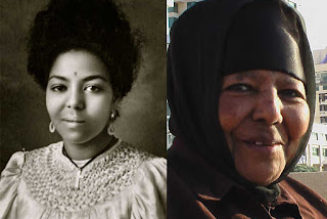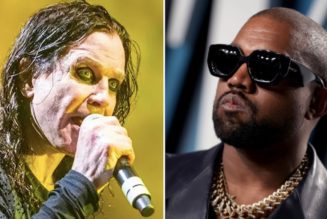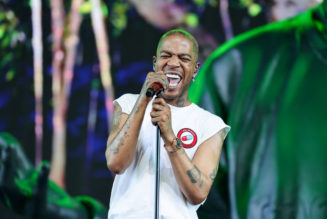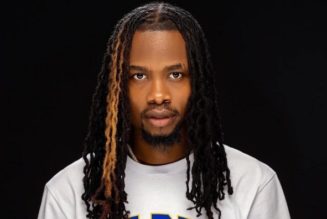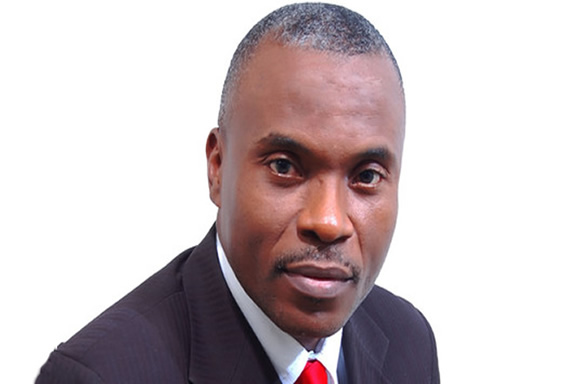
Last week, another Nigerian musician, Asake (Ahmed Ololade), had a sold-out concert at the 20,000-capacity O2 Arena in London. Before him, other Nigerian musicians like Wizkid, Burna Boy, and Davido had achieved the same fate.
Some decades ago, something like that was unimaginable. Until the turn of the century, the popularity of Nigerian music was strongest in Nigeria and a few African countries. Music from the United States of America was much more preferred by Nigerians to Nigerian songs. Nigerian songs were seen as “local” with a derogatory connotation of “low class.” Nigerians even revered musicians from other African countries like Yvonne Chaka Chaka, Awilo Longomba, Lucky Dube, Alpha Blondy, Brenda Fassie, Miriam Makeba, Papa Wemba, etc, and saw them as “big stars” in comparison with Nigerian musicians.
At parties, DJs would mix the hip-hop songs from the US or UK nonstop, occasionally infusing one or two Nigerian songs like Onyeka Onwenu’s “One Love” or Blaccky’s “Rosie” (Can I Have a Dance with Rosie) into them. When the party-makers got tired and sat down to eat or began to disperse, then the DJ could start playing Nigerian music.
If an organisation wanted to host a concert with “depth, magnitude and class,” then an “international” musician must headline it, while Nigerian musicians served as category B performers that would keep the crowd busy until the appearance of the mega star.
Across the states of the federation, radio stations (especially FM stations) played foreign music all day and in-between programmes, while Nigerian songs were played during a belt reserved for local songs. On the streets, DJs and sellers of music albums sent out loud foreign vibes from their speakers. Even motorists blast away foreign songs with the car glasses wound down.
Bright Chimezie lamented in a song (“Respect Africa”) that he went to an African “disco party” and requested an African song, but the whole people started laughing, calling him Okoro Junior. That name Okoro Junior overshadowed his real name in his music career. In another song, he said he requested an African song but was told to sit down, that the party was not for illiterates. Bright Chimezie released other songs that campaigned for Africans speaking their language (“Because of English”), eating African dishes even in a foreign land (“African Style”) and the injustice of painting all angels and biblical figures white but painting Satan black even though Satan or Lucifer was the leader of the angels (“Oyibo Mentality”).
However, the coming of 2Face’s “African Queen” song in the album Face 2 Face in May 2004 changed all that. The perception of Nigerian songs as local and inferior began to wane. Within a few years, Nigerian music pushed out US music from Nigerian radio stations, clubs, parties, concerts, and events. Soon Nigerian musicians dominated the African music scene. In recent years, they have gone beyond Africa into all parts of the world.
Today that the Nigerian music has risen to international heights, it is hard for many to draw a link between that meteoric rise and the cultural emancipation that people like Bright Chimezie campaigned about in the 1980s. Unlike when he sang about being derided as a rustic man for requesting a Nigerian song at a party, nobody will laugh at a Nigerian who asks for Nigerian music at any party in Nigeria. Now, people even have to beg DJs to play Western songs at parties. Bright Chimezie’s forerunner work in asking that Nigerians and Africans promote their own music (and culture) was like a planted seed that sprouted in due course and took years to grow into a tree that eventually bore fruits which many enjoyed without even remembering who planted the tree. He needs to be recognised for that role he played at a time it was very unpopular.
Recently I travelled through parts of Germany, Canada, United States, the Bahamas, Sint Maarten, and Virgin Islands, and was pleasantly surprised at how deep and far and wide Nigerian music has gone. At shopping malls, restaurants, street corners, parties, in taxis, on radio stations and in remote communities, Nigerian music was being played back-to-back. People of different racial backgrounds were singing and dancing to Nigerian songs. The feeling I had was surreal. I felt so proud to be a Nigerian. I was wondering if it was the same Nigerian songs that we saw as “local” not too long ago that people from different countries were embracing this way.
If you go online to play some Nigerian songs, you will witness something similar. When you read the comments from people from different countries, you will feel proud to be a Nigerian. People from different parts of Africa commend Nigeria for the great strides made in music. People from Asia, South America and the Caribbean feel happy that a developing country is making waves in a field that the United States used to completely dominate. It gives them the good feeling that if Nigeria can do it, they too can do it.
Before the rise of the music industry, the Nigerian film industry also experienced a turnaround in 1992 when Okey Ogunjiofor and NEK Links produced the film Living in Bondage. Before then, Nigerians cherished films from the US, India and China. But Living in Bondage changed the Nigerian film story and created a large market for films. Actors and actresses, as well as producers, became rich and popular across Africa.
Recently, I noticed that Nigerian films are popular in the Caribbean too. One point I got from some Caribbean people I interacted with is that Nigerian home videos changed their perception of Nigeria and Africa. According to the feedback I got, unlike what they see in the news and books about Africa as a land of poverty, disease and war, Nigerian films present a land of wealth, class and pride. They said that they could not believe that the type of mansions, cities, cars and lavish parties they see in Nigerian home videos exist in Africa. But they noticed that in most of the Nigerian films and music videos, the same wealthy neighbourhoods are presented, which made them to consciously search online for Nigerian cities and were amazed that Nigeria and other African countries were not a land of mud huts, jungles and naked children with flies perching on them. They wondered why they hardly see the cities and opulent ambience they see in Nigerian home videos on international news channels.
Furthermore, one ripple effect about the boom in the Nigerian movie industry and music industries is its positive impact on other African countries. When the Nigerian movie industry exploded, the movie industry in Ghana, South Africa etc, also experienced a boost. When the Nigerian music industry exploded, it also positively affected Ghana, Cameroon, South Africa, Ethiopia. Other continents now pay more attention to African pop music, which Western media christened Afrobeats, creating some confusion in nomenclature with the Afrobeat that Fela Anikulapo-Kuti popularised.
Even in sports, Nigeria’s success has affected other African countries. For example, in 1985 Nigeria won the maiden edition of FIFA U-16 World Championship, which was later renamed FIFA U-17 World Cup. In 1987, Nigeria narrowly missed the cup, and in 1989 were unlucky to lose on penalties. Nigeria did not participate in the 1991 edition because of suspension by FIFA. That year, Ghana won it. Similarly, at the 1996 Olympics in Atlanta, Nigeria won the gold medal in football, which Americans call soccer. At the 2000 Olympics in Sydney, Cameroon replicated the Nigerian feat.
There is no gainsaying the fact that if Nigeria had improved glaringly in politics, technology, and economy, that would have boosted the confidence of many African and Caribbean countries to rise and become reckoned with like Singapore, South Korea, etc. Blacks across the world would also have become proud that a Black country is rubbing shoulders with the great countries of the world.
Therefore, the more Nigeria continues to under-perform, the more many other countries are kept down. But if Nigeria can rise to her feet and take its place among the admired countries of the world, it will have a domino effect on many African countries, Caribbean countries, and even Asian countries. The world has been waiting for Nigeria for long to wake up from its slumber.
— Twitter: @BrandAzuka




